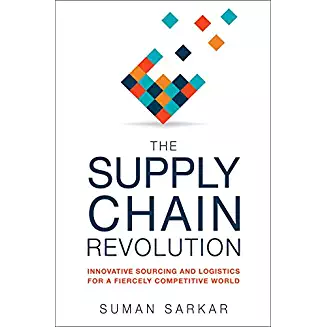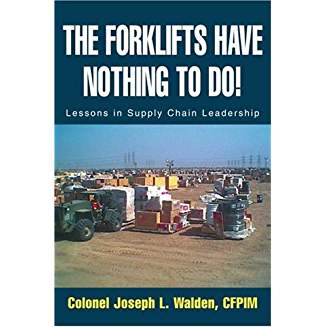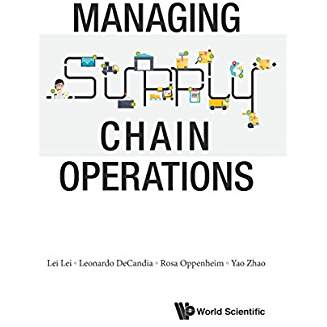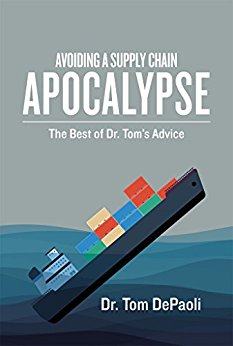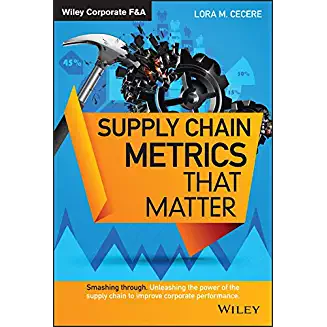Here are five books for supply chain leaders to stay on top of industry trends and management practices.
“Leadership is the capacity to translate vision into reality.” — Warren Bennis
All executives and managers bring different skills to the table. They have different experiences and approaches that set them apart. So what makes an executive a great leader? Great leaders embody the ability to inspire and empower their teams to succeed.
But great leaders don’t stay great, unless they continue to adapt to new environments, approaches and, ultimately, challenges. One of the best ways to sharpen your leadership skills is by learning from other leaders’ experiences. Leadership books, especially those focused on the supply chain and logistics industries, give valuable insight into the trials and triumphs of your industry peers’ encounters.
Here are five books that we recommend reading to keep getting the job done: empowering your team, learning about industry trends, updating your management practices, and other key insights.
5 must-read books for supply chain leaders
1. The Supply Chain Revolution: Innovative Sourcing and Logistics for a Fiercely Competitive World
The smartest leaders see supply chain and sourcing for what they can be: hidden tools for outperforming the competition. Steve Jobs, upon returning to Apple in 1997, focused on transforming the supply chain. He hired Tim Cook, and the company sped up the development of new products, getting them into consumers’ hands faster. The rest is history.
Across a range of industries, once-leading companies are in trouble. While competitors were shuttering stores, Zara’s highly responsive supply chain made it the most valued company in the retail space and its founder, the richest man in Europe. The success of TJX, Amazon, Starbucks, and Airbus is fueled by supply chain and sourcing. Showcasing real solutions, The Supply Chain Revolution aims to educate leaders to improve customer satisfaction and increase revenue.
2. The Forklifts Have Nothing To Do! Lessons in Supply Chain Leadership
The Forklifts Have Nothing To Do! by Colonel Joe Walden provides practical methods for improving supply chain operations. Walden has spent more than 25 years leading supply chain operations and believes that improving your supply chain will improve your bottom line, regardless of your industry.
His recommendations draw on examples in civilian industry and military operations, including his recent experiences in Operation Iraqi Freedom. Supply chain operations in the military are very similar to supply chain operations in commercial industry. Both have the ability to improve operations for the customer.
3. Managing Supply Chain Operations
Managing Supply Chain Operations by Lei Lei, Leonardo DeCandia, Rosa Oppenheim, and Yao Zhao shows leaders the key drivers of supply chain performance. These include demand forecasting, sales and operations planning, inventory control, capacity analysis, transportation models, supply chain integration, and project management and risk analysis.
The book is enhanced by real-life examples and case studies, as well as strategies from best practices and a focus on social and economic impact. The content reaches beyond traditional operations management and draws on the extensive experience of the authors conducting industry projects through the Rutgers Center for Supply Chain Management. The input of senior business executives has been an invaluable asset in presenting a balanced knowledge of both quantitative models and qualitative insights.
4. Avoiding a Supply Chain Apocalypse: The Best of Dr. Tom’s Advice
In his creative guide Avoiding a Supply Chain Apocalypse, Dr. Tom DePaoli offers practical strategies and tactics, learned and tested from his purchasing and supply chain career.
DePaoli recommends a multi-faceted, diverse approach to avoiding supply chain meltdowns. He challenges readers to survey his best writings and to select what fits their particular organizational cultures. There is no one-size-fits all in the supply chain. As the importance of supply chain management grows leaps and bounds, the supply chain professional must develop multiple options and proficient tactics to ensure the continuity of the supply chain.
5. Supply Chain Metrics that Matter
One cannot snap their fingers and deliver supply chain success. It happens over the course of many years and is measured in inches not miles.
In this book, Lora M. Cecere evaluates the progress of over a hundred companies over the period of 2006-2013. The effective supply chain makes a difference in winning a war, saving a patient, and driving commerce. But it also makes a difference in a community having clean air, potable water, and a higher standard of living. Mistakes are hard to overcome. Supply Chain Metrics that Matter tells this story. The book links corporate financials to supply chain maturity, and what metrics matter most.
What books for supply chain leaders do you recommend?
Related posts:


